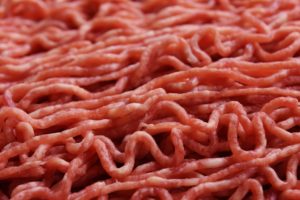 Every aspect of society will be affected as we move into a postcapitalist world, and food production is no exception. The argument is often made that “you can’t digitalize food,” and while that may or may not be true, it is certainly true that food production will change dramatically in the new society. So-called synthetic food production is in its infancy, and is likely to change how we produce the majority of our food.
Every aspect of society will be affected as we move into a postcapitalist world, and food production is no exception. The argument is often made that “you can’t digitalize food,” and while that may or may not be true, it is certainly true that food production will change dramatically in the new society. So-called synthetic food production is in its infancy, and is likely to change how we produce the majority of our food.
To get a better idea of where we are going, I recently conducted a brief survey of articles to see what I could discover about the future of food and meat production. What are the dominant images? What are the dreams of the future the innovators carry in their minds?
These dreams are important because they affect what really happens. The more we imagine it, the more it comes into actuality. Engineers build what they imagine. So do artists, entrepreneurs, and craftspeople. What we produce and create starts with imagination.
So, if we want to understand where the future is going, we start by asking: What are people imagining? What are they dreaming? Of course, after that, we start asking about what is, or will become, economically viable. That, however, is a selection process, not an imaginative one.
Mass Synthetic Meat Production
A recent article from modernfarmer.com imagines the elimination of feedlots through synthetic meat production.
“Cultured meat proponents say once the meat-growing process is honed, concentrated animal feedlot operations (CAFOs) could be replaced by small factories scattered around cities where a few live animals would be maintained to generate cells and the cultured meat would be produced inside bioreactors on site, and sold there as well. This vastly shortened supply chain would go a long way toward reducing the carbon emissions associated with meat’s transport. It could also serve to make consumers more intimate with and accepting of the cultured meat process.”[1]
From a postcapitalist viewpoint, this new production model is an early step in a new postcapitalist production paradigm whereby production moves closer and closer to the consumer. “Small factories scattered around cities” is a very different model from the large feedlots thousands of miles from anyone. Capitalism will always describe this as “shortened supply chains,” but what it really is leading to in a postcapitalist world is the elimination of the production-consumption split.

Technically speaking, this idea is just one step toward where it is actually headed. In 2005, the NY Times magazine ran an article that included a wild vision of the future.
“Scientists at NASA and at several Dutch universities have been developing the technology since 2001, and in a few years’ time there may be a lab-grown meat ready to market as sausages or patties. In 20 years, the scientists predict, they may be able to grow a whole beef or pork loin. A tissue engineer at the Medical University of South Carolina has even proposed a countertop device similar to a bread maker that would produce meat overnight in your kitchen.”[2]
The vision of the countertop device is decidedly not in the twenty year plan, but it is likely in the postcapitalist future. When it arrives, it will completely close the production-consumption gap in terms of meat agriculture. It cannot be a long step from that to kitchen countertop production of all foods.
The ultimate technical challenge on all of this is straightforward—there will always be intensive input needs to produce food. This may be true, but I wonder if it is reality or a lack of imagination.
Plants need NPK in the soil—we know that. But that assumes that you need the plant. What if the orange can be grown without the tree, or the potato without the green? And all from an original stem cell or a digital code? And why do we think this is not possible if we can grow meat without the cow—all of its bones, organs, skin, hooves, and guts—all superfluous from a food standpoint, and therefore overproduced, requiring energy that need not be input?
The energy gains are claimed to be substantial, as in this profile of Memphis Meats from Business Insider last year:
“The lab-grown meat process goes something like this, according to Valeti. Find ultra-high quality cows and pigs. Take meat cells from a pork shoulder or other cut of meat. Find the cells capable of self-renewal and cultivate them in a sterile environment. The cells are harvested early for tender cuts of meat, and harvested later for textured cuts.
“Since lab-grown meat doesn’t need to snack on grain to survive, the energy inputs can be significantly lower than with “real” meat. Memphis Meats claims it requires just three calories of energy input for one calorie of energy output.
“The cost to make lab-grown meat has dropped dramatically recent years. When Mark Post, a researcher at Maastricht University in the Netherlands, created a burger made from lab-grown meat in 2013, it cost $325,000. In 2015, Post said that he’d been able to bring the price down to just over $11 for a burger.”[3]
In other words, the innovators are imagining not just the product, but a far more efficient process for creating it. And they envision economic viability not too far down the line.
Ethics
 At this point, the imagination unfolds toward an ethical discussion, and the ethics questions are many with various people imagining this new world in different ways. One common way came from an article on food-ethics.com.
At this point, the imagination unfolds toward an ethical discussion, and the ethics questions are many with various people imagining this new world in different ways. One common way came from an article on food-ethics.com.
“The really big benefits, ethically, have to do with animal welfare and environmental impact. Peter Singer, the philosopher most directly responsible for the growth of the animal welfare / animal liberation movement, has referred to Post’s new dish as “the world’s first cruelty-free burger.”
“Are there ethical objections to lab-grown meat? A few possible ones come to mind, though I don’t think any of them is compelling.
“Let’s start with safety. Will lab-grown meat be safe? Well, that remains to be seen, I suppose. But we have the technology to test new products for safety. We can test for the relevant pathogens, and so on. And there’s no particular reason to expect that lab grown-meat won’t be just as safe (or unsafe!) as meat grown other ways.
“Some will worry about the amount of animal product inputs that will be required to make lab-grown meat. Some news sources are reporting that Post cultured his meat in fetal bovine serum, which comes from the blood of calf fetuses. This raises the spectre of millions of pounds of lab-grown meat being cultured in millions of gallons of fetal bovine serum, requiring the slaughter of untold millions of calves. But this worry shouldn’t be exaggerated: fetal bovine serum is seriously expensive, so while it may have been used in the production of this burger, we can safely assume that any mass-produced burgers will be cultured in a suitable artificial substitute medium.
“Others will object to any quantity of animal inputs: after all, synthetic beef is still cultured from beef cells, and those ultimately come from a cow, a living being. If you’re a hardcore proponent of animal rights (as opposed to animal welfare) then you might well object that synthetic meat is still, well, meat, and that it has to be cultured from cells drawn from a real animal. But anyone taking that line will eventually find themselves counting how many angels can dance on the head of a pin.
“Finally, some will object to lab-grown meat simply because it is “artificial.” But that’s a spurious distinction, and an aesthetic objection masquerading as an ethical one. Much of what we eat now is already artificial in all the senses that make any difference. And there’s no particular reason to object to things simply on the basis of their artificiality.
“Of course, ethical optimism also needs to be tempered by a realization that there are a lot of scientific and technological steps between growing enough meat for a single barely-edible lab-grown burger and producing synthetic beef (or chicken or pork or fish) on a mass scale. But on the whole, I think the development of lab-grown burgers is an excellent thing, from an ethical point of view. Or at least, very promising.”[4]
This ethical view seems to drive several of the entrepreneurs and innovators in this space. Several of them are coming up not with synthetic meat per se, but rather with meat substitutes that taste as good or better than the real thing. One example of this approach was described in a Popular Science article recently:
“To Brown, there is little difference between his product and the real thing. Factory-farmed chickens aren’t really treated as animals, he says; they’re machines that transform vegetable inputs into chicken breasts. Beyond Meat simply uses a more efficient production system. Where one pound of cooked boneless chicken requires 7.5 pounds of dry feed and 30 liters of water, the same amount of Beyond Meat requires only 1.1 pound of ingredients and two liters of water.”[5]
 Perhaps the ultimate claim of these alternatives is made by Impossible Foods, a company manufacturing a meat substitute in burger form, which believes it has found the secret sauce to beef taste.
Perhaps the ultimate claim of these alternatives is made by Impossible Foods, a company manufacturing a meat substitute in burger form, which believes it has found the secret sauce to beef taste.
“Our burger is made from simple, all-natural ingredients such as wheat, coconut oil, and potatoes. What makes the Impossible Burger unlike all others in an ingredient called heme. Heme is a basic building block of life on Earth, including plants, but it’s uniquely abundant in meat. We discovered that heme is what makes meat smell, sizzle, bleed, and taste gloriously meaty. Consider is the ‘magic ingredients’ that make sour burger a carnivore’s dream.” [6]
I could find no word from the company relative to production scale or methods, but their vision reflects what is at the basis of all these innovations—a perceived need and desire to disrupt industrialized agriculture as we know it. While beef and other livestock production has grown substantially over decades, the industrialization and scale of the industry has dwarfed any sense of propriety around farms.
Admittedly, there is a long way to go before any of these technologies become viable. Then again, it was a long way from the first PC to the smartphones of today. Because it will take time doesn’t mean it won’t happen.
Additionally, the point is usually made that food production is input intensive, and the cost of the inputs is always going to create a challenge. While that is true, it should be possible to grow these things artificially with far fewer inputs than traditional agriculture. Why? Because our current system requires that we grow a plant, a tree, or an entire body just to get the parts that we can eat. That’s an awful lot of overproduction. What if the orange can be grown without the tree, or the potato without the green? And all from an original stem cell or a digital code? And why do we think this is not possible if we can grow meat without the cow?
I admit that my own traditional leanings make me less than a fan of this future. Then again, I wasn’t a fan of GMOs and they arrived anyway. I probably wouldn’t have been a fan of hybrids either. I’m still not a fan of chemical pesticides or fertilizers. Apparently, whether I am a fan or not doesn’t matter much. The march of the technical juggernaut goes on. I suspect the same is going to happen with synthetic food production—it will continue to develop and eventually produce a lot of our food. It will be part of the postcapitalist world that lies ahead.
NOTE: Sign up for this blog so you cna get each article as we post them.
REFERENCES
[1] http://modernfarmer.com/2014/09/give-cells-chance/ Sept 30, 2014
[2] http://www.nytimes.com/2005/12/11/magazine/in-vitro-meat.html?_r=0, Dec 11, 2005
[3] http://www.businessinsider.com/memphis-meats-is-making-lab-grown-meatballs-2016-7
[4] https://food-ethics.com/2013/08/05/ethics-of-the-worlds-first-synthetic-burger/
[5] http://www.popsci.com/article/science/can-artificial-meat-save-world
[6] https://www.impossiblefoods.com/burger/